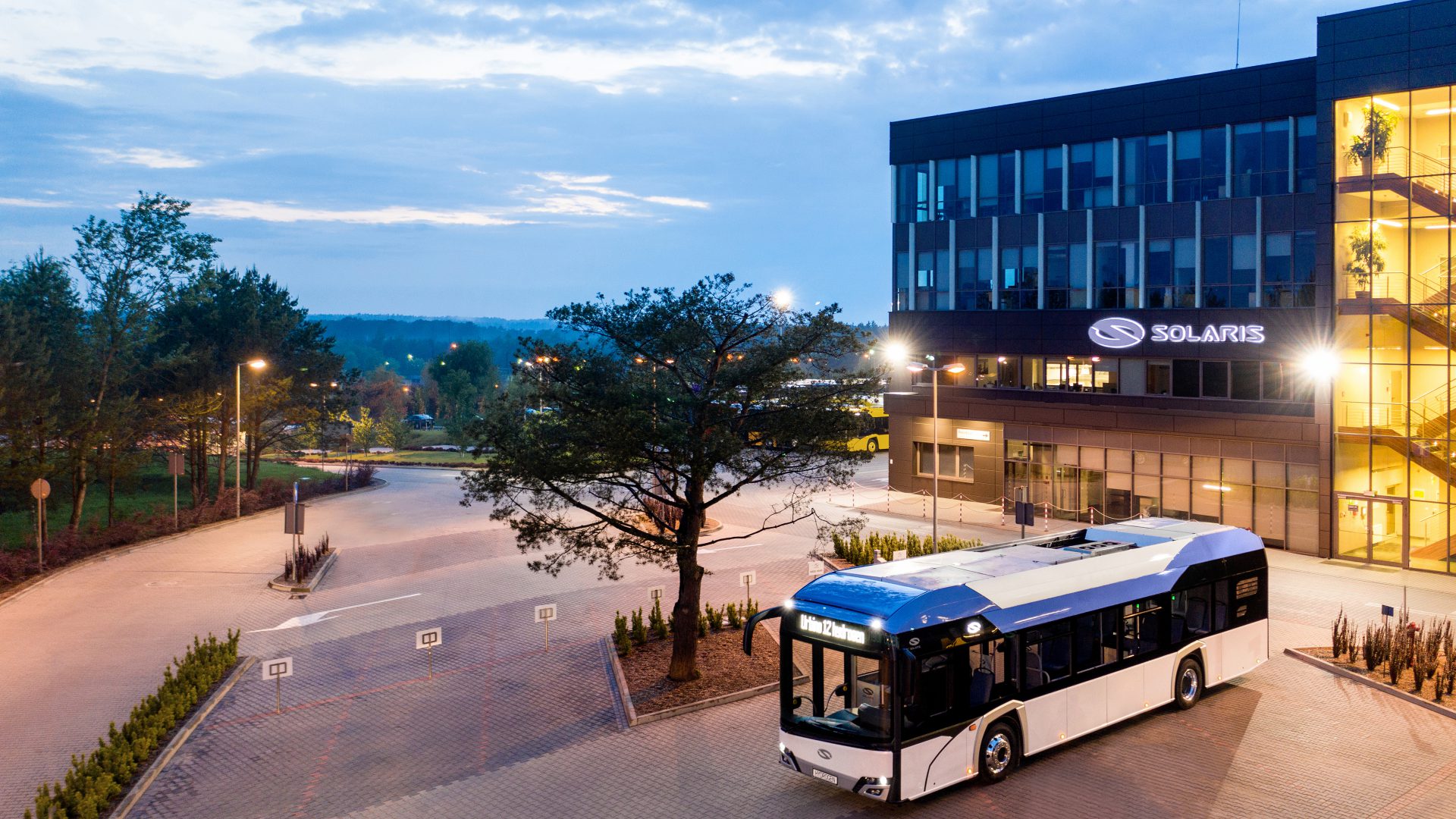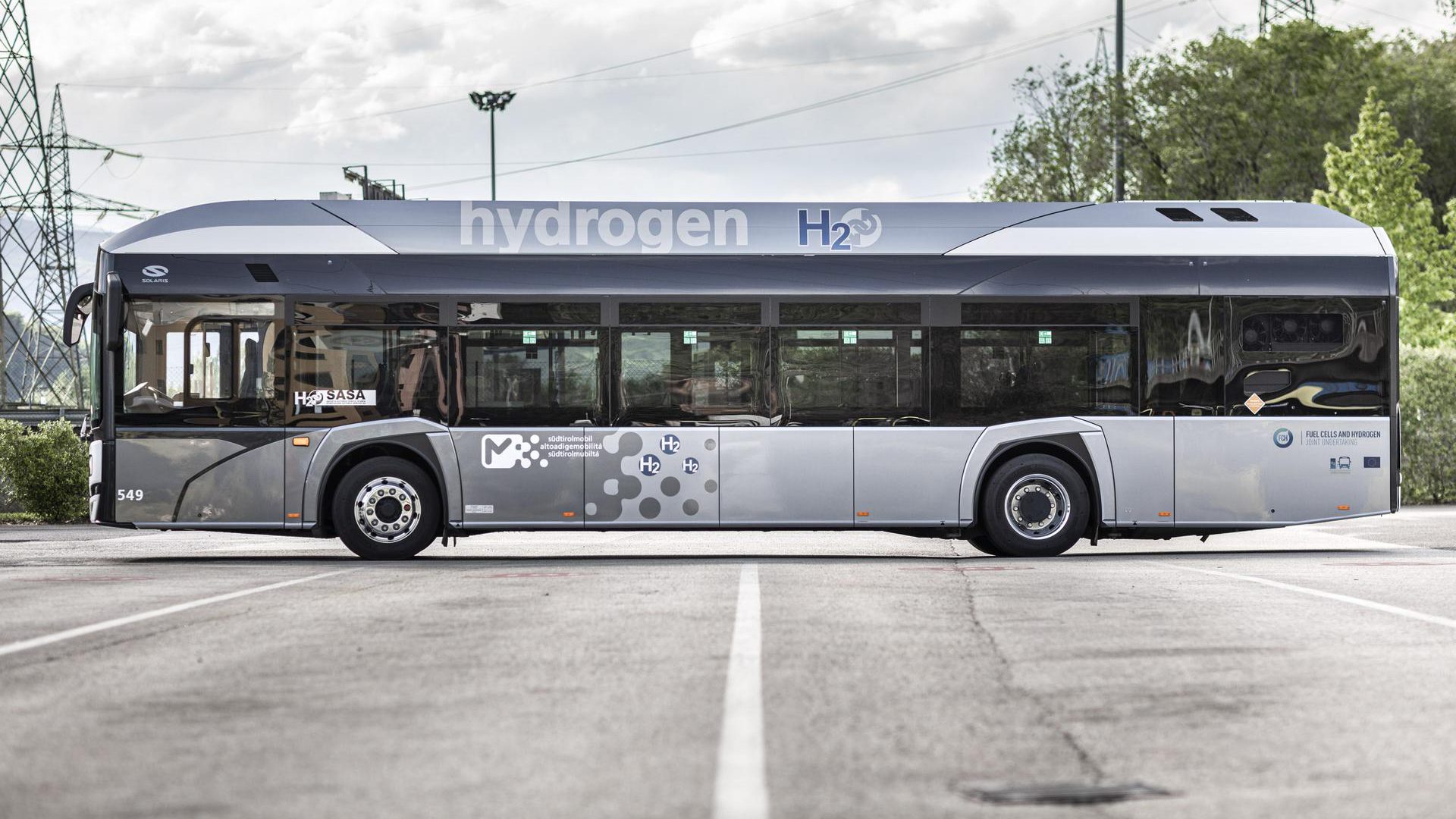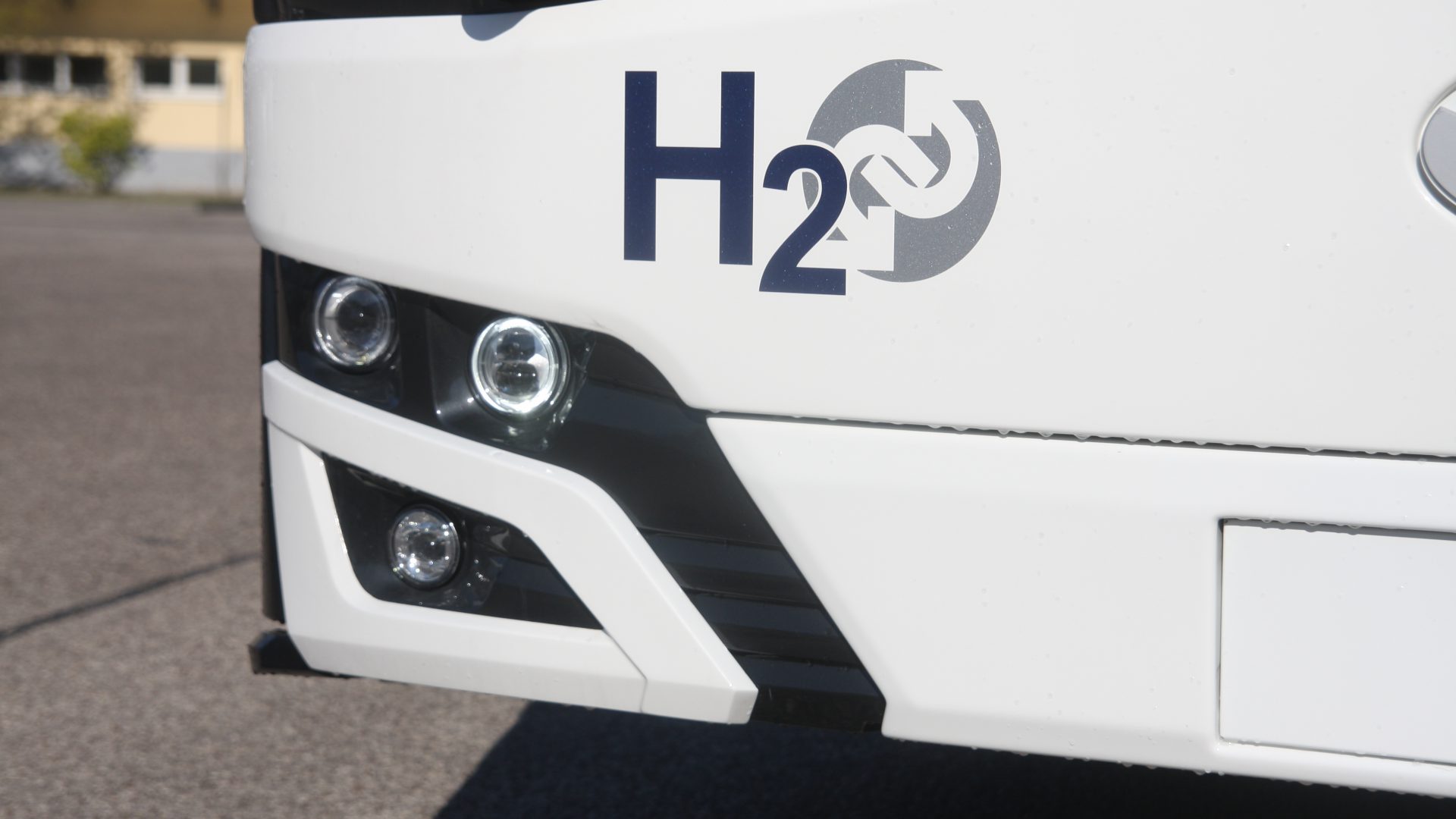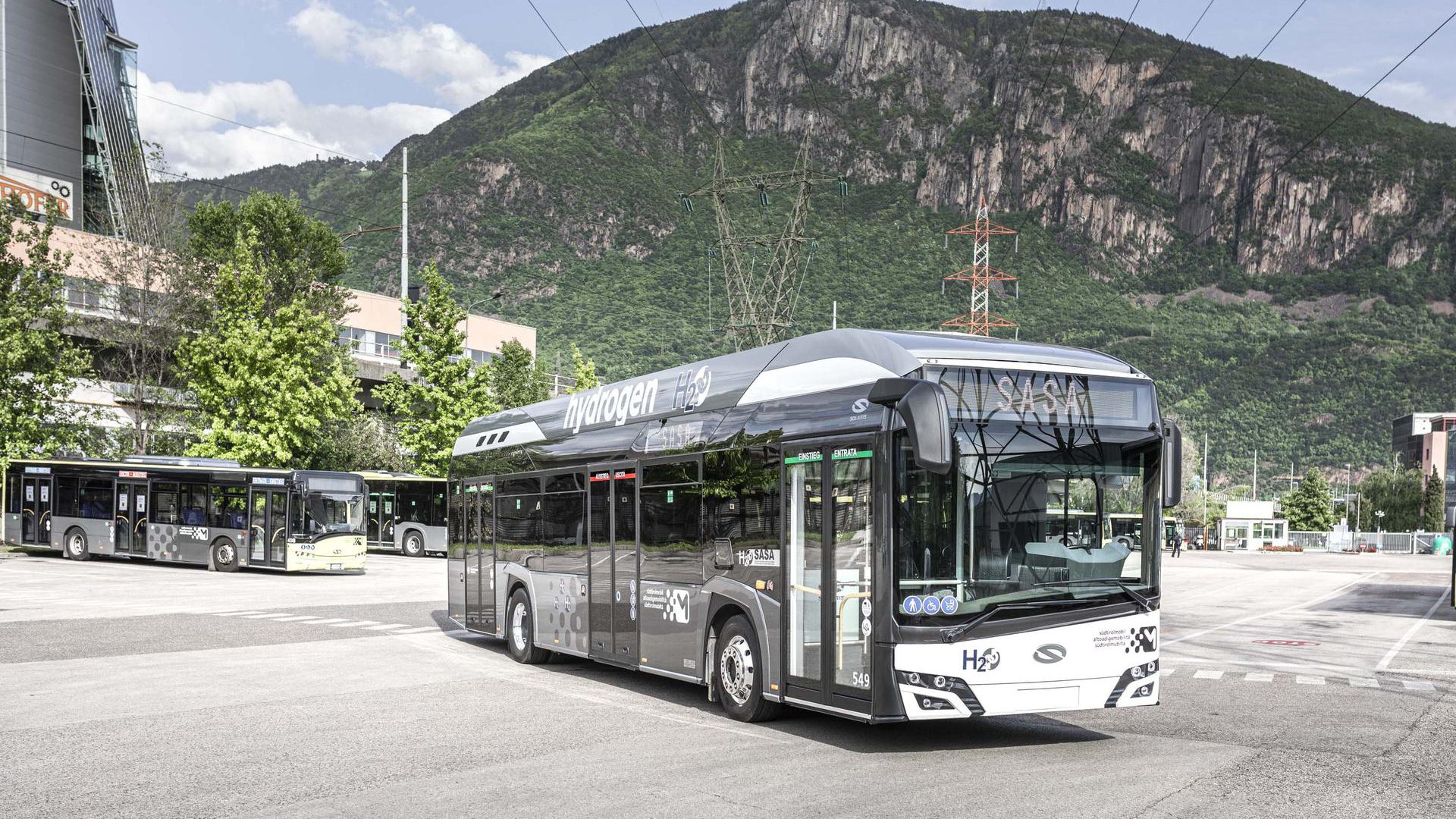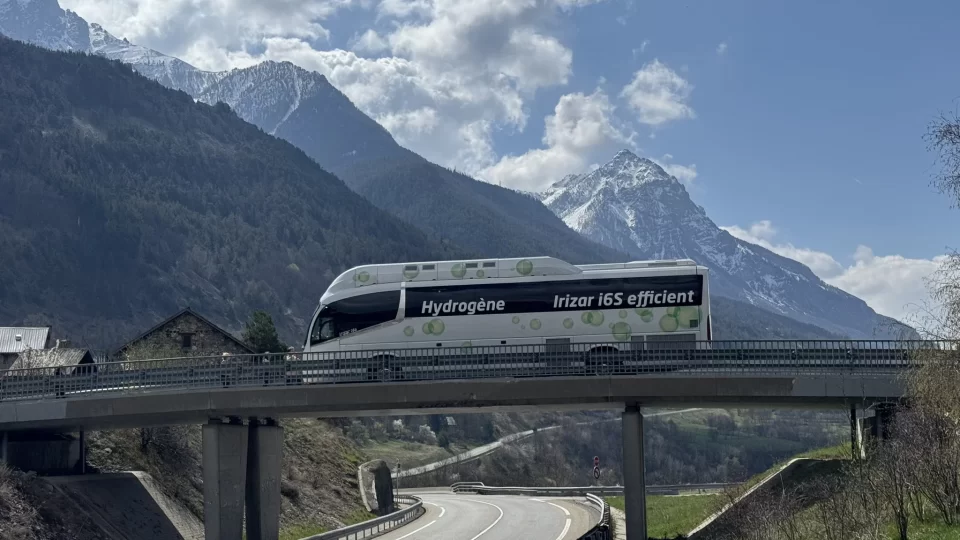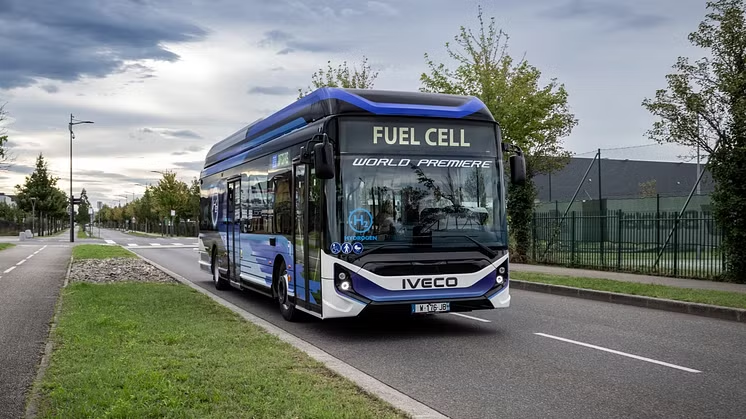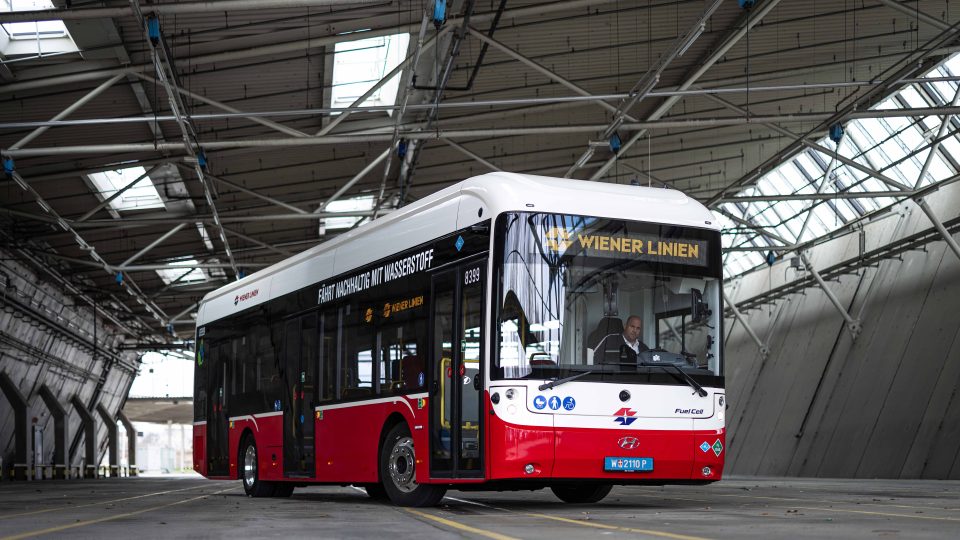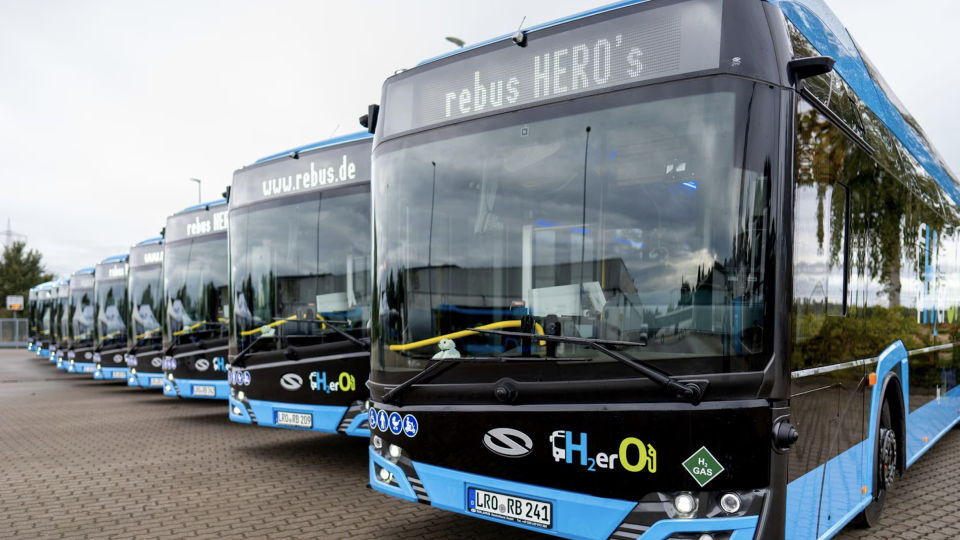Solaris fuel cell bus: the Urbino 12 hydrogen takes the road
Solaris Urbino 12 hydrogen. The Polish producer has added in 2020 the fuel cell bus to its zero-emission bus portfolio. At the heart of the vehicle is the eighth generation of the fuel cell module by Ballard, launched at Busworld 2019. Solaris officially presented their hydrogen Urbino at the UITP summit in Stockholm in mid-2019. […]
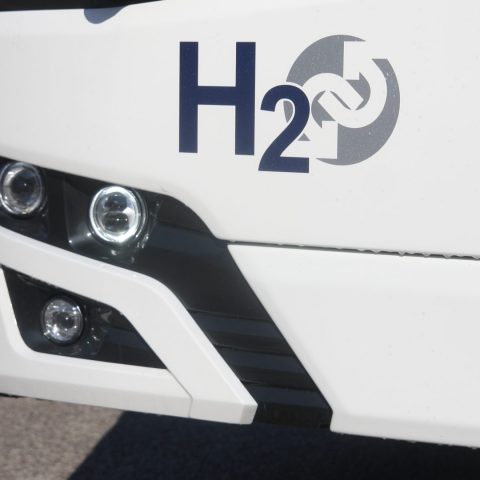
Solaris Urbino 12 hydrogen. The Polish producer has added in 2020 the fuel cell bus to its zero-emission bus portfolio. At the heart of the vehicle is the eighth generation of the fuel cell module by Ballard, launched at Busworld 2019.
Solaris officially presented their hydrogen Urbino at the UITP summit in Stockholm in mid-2019. A trade fair edition- and a year- that saw fuel cell solutions get into the limelight with more than one project implemented under the H2 flag.
And the Polish bus builder – whose attention to the latest sectoral trends is well-known (see the electric Urbino that they launched at IAA 2012 before e-buses became trendy) did not miss this opportunity, bringing its first ever hydrogen-fueled 12 m to the appointment in the Swedish Capital. Hydrogen is, by the way, an option that Solaris also investigated into in the form of a range extender under an innovative project addressed at Riga’s trolleybuses.
The first order for the Solaris Urbino 12 hydrogen was placed from Italy: SASA Bolzano (Bozen’s public transport operator) ordered 12 units, under the JIVE programme financed by the European Union. The contract is worth 12.8 million euros and it includes servicing and maintenance for eight years. The vehicles have been launched in May 2021.
Solaris Urbino hydrogen. LTO batteries are standard
The Solaris Urbino hydrogen is basically structured as its battery-electric counterpart, hence made of stainless steel but sporting roof-mounted hydrogen tanks as its distinctive feature. The traction system is unchanged.
Batteries are quite obviously smaller than on the Urbino Electric: the bus ordered by SASA will be fitted with 30 kWh of Solaris High Power, the type designed for quick charging, by virtue of its high maximum charging power. Batteries are charged with fuel-cell derived electricity plus that contributed by the braking energy recovery system. Moreover, there is a plug-in connector allowing the bus to fill batteries up while the vehicle is at a standstill.
Solaris Urbino 12 hydrogen. Fuel cell module? Ballard
The beating heart of the latest addition to the Solaris Urbino hydrogen is the fuel cell FCmove-HD 70 kW stack by Ballard Power Systems, the main global player providing fuel cells to heavy-duty commercial vehicles. Ballard can boast collaborations with Van Hool and VDL, and with the British bus builder Wrightbus.
The system mentioned above belongs to the eighth generation of the FC move range. Based on Ballard’s data, the FC move-HD is smaller and lighter than its predecessor – 40% and 35%, respectively. In detail, the weight is 250 kg. Moreover, the system is now made of 50% less components, which means lower maintenance costs. Ballard states that the component’s Total Cost of Ownership is 35% lower than with the previous model.
The system’s adaptability to extreme working conditions was also improved, with the unit now being able to get started even at a temperature of minus 25 Celsius degrees. Lastly, hydrogen is stored in a gaseous state at a pressure of 350 bar into 5 new generation tanks located, as already mentioned, on the bus’s roof.
Emission-free air conditioning on the Solaris Urbino hydrogen
The tank set of the Solaris Urbino hydrogen, made of type 4 composite materials and placed longitudinally above the vehicle’s first axle, reaches a total volume of 1560 l and guarantees a storage capacity equal to 37.5 kg of hydrogen.
With a view to reducing energy consumption as much as possible, the vehicle was also equipped with an air conditioning system including a CO2 heat pump which allows to recover the fuel cell’s waste heat and use it for internal heating. Passenger capacity reaches 82 people, 38 seated.

